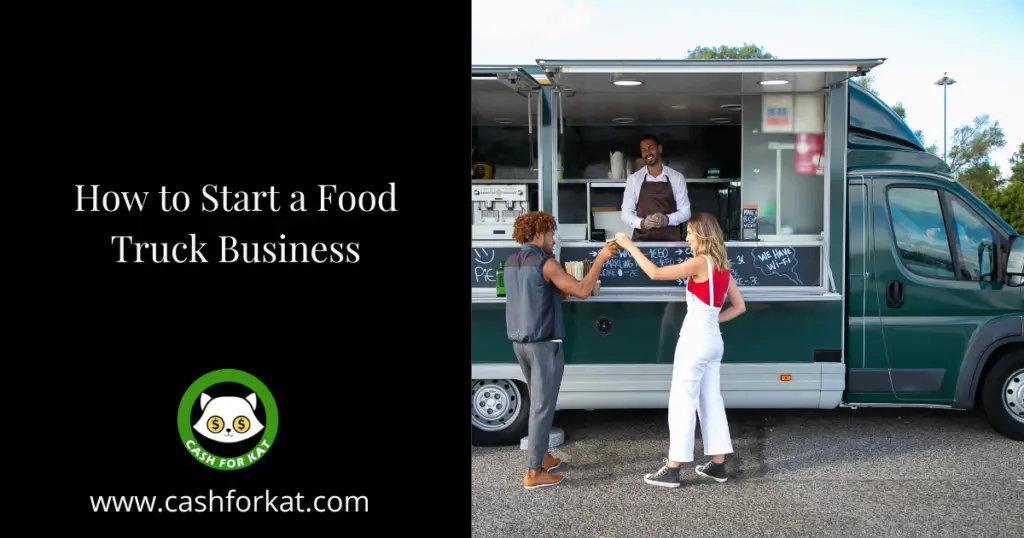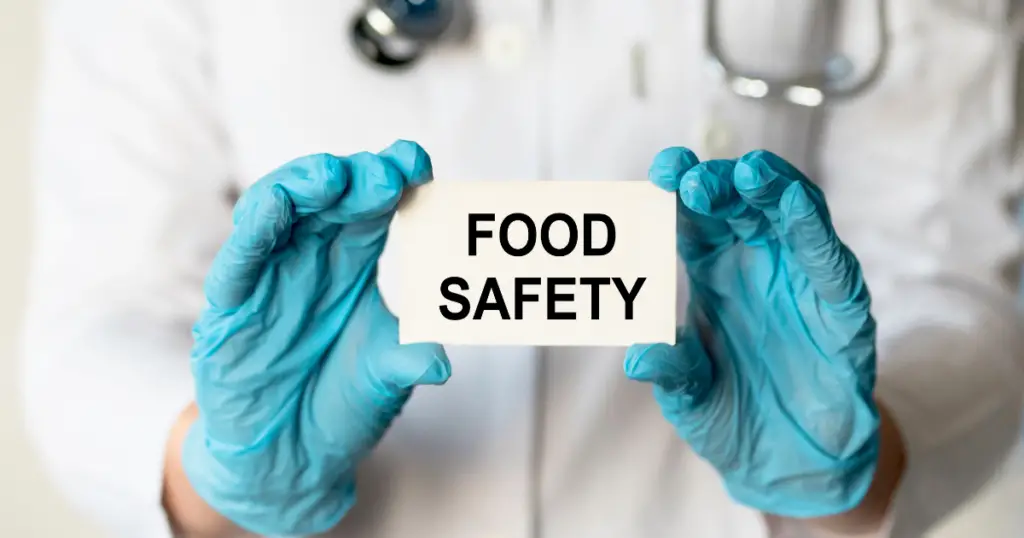
This post will teach you how to start a food truck business and was inspired by all of the bad advice I’ve been seeing online.
My parents owned an ice cream and sandwich business for over 10 years. So I know a thing or two about running food and beverage businesses! I’ve also run concession stands on behalf of our family business, which encounters many of the same issues that food trucks deal with (such as running water sources!).
I’ve also pulled together some excellent resources that share stories directly from food truck owners. Keep reading to learn the realities of starting a food truck business.
Table of Contents
- How to Start a Food Truck Business in 11 Steps
- Research Local Regulations for Food Trucks
- Speak With Food Truck Owners
- Calculate your estimated costs… then double them
- Draft Your Business Plan
- Decide Your Business Structure
- Start Applying for Your Food Truck Permits
- Take Your Food Safety Courses
- Get Your POS System
- Start to Prepare Your Food Truck
- Pass Your Initial Health Inspection
- Consider Hiring Employees
- Final Thoughts on Starting a Food Truck Business
How to Start a Food Truck Business in 11 Steps
There is a lot more that goes into running a food truck business than most people anticipate.
I think most people believe that a food truck is easier to start than a brick-and-mortar store. While the startup costs might be lower, there are actually more things that you have to consider when starting a food truck.
I was surprised by how many online articles recommended starting with a business plan. Typically this is sound advice. That being said, for a food truck business, I think you would actually want to start with having a deep understanding of the local regulations.
These will inform your business plan and may even make you change your mind about how you want to run your business.
I will dig deeper into these topics later on in the post. The main things that you will want to be aware of before starting your food truck business are local regulations, permits, and an extensive list of potential unexpected costs.
As I am from California, I will share a lot of information that is related to local rules. That being said, I’ve done my best to include a variety of sources from across the US.
Here are the 11 steps you will need to take before starting your food truck business:
- Research Local Regulations
- Speak with Owners
- Calculate your estimated costs… then double them
- Draft your business plan
- Decide your business structure
- Start applying for your food truck permits
- Take your food safety courses
- Get your POS System
- Prepare your truck
- Pass your initial health inspection
- Consider hiring employees
Research Local Regulations for Food Trucks

Researching local regulations before starting a food truck business is paramount for ensuring legal compliance and long-term success.
Local regulations encompass a range of crucial factors, including health and safety standards, zoning requirements, and necessary permits and licenses. Non-compliance with these laws can lead to fines, closures, and legal consequences, making it essential to understand and adhere to them from the outset.
Comprehending local regulations allows you to make informed decisions about your business’s location, competitive positioning, and budget considerations. It also helps build trust with your customers and minimizes the risk of legal issues. This contributes to the viability and reputation of your food truck venture.
Speak With Food Truck Owners
There is so much that goes into owning a food truck that it would be impossible to cover it in one post. With many other businesses, you can simply do research to learn most of what you need to know.
Food and beverage businesses are a different Beast. As usual, this goes back to understanding local regulations which can vary so much from state to state and city to city. Not only that but the rules are constantly changing.
You will definitely want to connect with other food truck owners to learn some of the basic things you should watch out for in your area.
One great way to find trucks in your area is by using the StreetFoodFinder App. This app shares the location of food trucks in major metros for these states: Ohio, Raleigh, LA, Phoenix, Nashville, and Tampa.
Here is a list of interviews with food truck owners to get you started:
- Harvard Business Review’s interview with Jon Moy, owner of Moyzilla food truck in Boston: “Career Crush: Do You Have What It Takes to Own a Food Truck?”
- FoodTruckr’s post on, “50 Food Truck Owners Speak Out: What I Wish I’d Known Before Starting My Food Truck”
- FeedSpot’s list of the, “20 Best Food Truck Podcasts“
- UpFlip’s interview with Jada and Nic, “3 of 5 Food Trucks Fail… Ours Didn’t. Here’s How!”
Calculate your estimated costs… then double them
I recently wrote about the cost of starting a food truck in my post on 8 Businesses to Start with 10k, 20k, and 50k. I placed the cost of starting a food truck business at around $50,000, but the reality is that you will likely spend more than that.
If you have business experience, look for ways to cut costs (like buying a used truck), and really know how to market your business, then this should be enough money to at least get going.
That being said, you don’t want to cut it close when starting these kinds of businesses because if they fail then you might have lost a significant amount of your life’s savings. This is why I recommend making your reasonable “best guess” as to the cost of running your food truck and then double it.
For example, if I thought I could run a food truck for $50,000 then I would probably try to have access to at least 100k of start-up capital.
If you have a refrigerator break, your truck broken into, and product stolen, and an engine failure within your first year… then this buffer is already almost entirely used up! And this is before you even consider the cost of having one full-time employee, which can easily run you $50k plus per year.
Draft Your Business Plan
You can find simple business plan drafts online. You will want to fill these out but also consider the other unique aspects of your business.
For example, food trucks obviously will need a place to be parked. You will definitely need to know these locations in advance and have backup locations in case those places close.
You might also be surprised to learn that food trucks need to be located within 200 feet of a bathroom and hand washing area.
Decide Your Business Structure
Prior to starting operations, you will want to register your business. Some types of businesses can put this step off, but I would not recommend delaying this step for food-related businesses.
If you accidentally get someone sick or they get injured around your truck, you could be exposing yourself to massive liabilities.
ZenBusiness provides excellent information on deciding if your restaurant should be an LLC. Additionally, you may consider starting your food truck under a well-known franchise.
Franchise agreements typically involve paying royalties and adhering to strict operational standards set by the franchisor. Franchises benefit from brand recognition and support but may have less autonomy.
Start Applying for Your Food Truck Permits
Obtaining food truck permits is essential for legal compliance, public safety, and the smooth operation of your mobile food business.
Without the right permits, you risk legal issues, fines, and potential closures. These permits cover various aspects, such as food safety, health inspections, zoning compliance, parking and vending rights, fire safety, and even special events participation.
Securing the proper permits demonstrates your commitment to maintaining a safe and hygienic food preparation environment, ensuring the quality and safety of the food you serve.
It also allows you to operate within designated areas, comply with zoning regulations, and participate in events seamlessly.
Take Your Food Safety Courses

A food safety course is a specialized training program designed to educate individuals about the principles and practices necessary to ensure the safe handling, preparation, and storage of food.
These courses cover a wide range of topics, including proper hygiene, foodborne illnesses, cross-contamination prevention, temperature control, and sanitation.
Participants learn how to identify and mitigate potential food safety risks in various food service settings, such as restaurants, catering companies, or food production facilities.
Successful completion of a food safety course often results in certification, which is essential for individuals working in the food industry to uphold the highest standards of food safety and protect the health of consumers.
“All food employees shall have adequate knowledge of, and shall be properly trained in, food safety as it relates to their assigned duties. Food facilities that prepare, handle, or serve non-prepackaged potentially hazardous food, shall have an owner or employee who has successfully passed an approved and accredited food safety certification examination. The certification is valid for five years from the issue date. There shall be at least one food safety-certified owner or employee at each food facility. No certified person at a food facility may serve at any other food facility as the person is required to be certified. A food facility that commences operation, changes ownership, or no longer has a certified owner or employee pursuant to this section shall have 60 days to comply.”
County of Los Angeles Public Health on Food Safety
Food Handler Certification

The California Food Handler Card Law, established under SB 602 in 2010, mandates that all food employees involved in food preparation, storage, or service, including servers, chefs, bartenders, and host/hostesses, must possess a California Food Handler Card.
This requirement also extends to bussers and certain supervisors, except for those managers already holding a Food Protection Manager Certification. The law stipulates that food handlers hired before June 1, 2011, must obtain their card by July 1, 2011, while those hired on or after June 1, 2011, must secure their card within 30 days of hire.
To obtain certification, individuals need to complete a basic food safety training course with a minimum passing score of 70 percent, provided by an ANSI-accredited training provider meeting the ASTM International E2659-09 Standard Practice for Certificate Programs.
You will also find that as you learn more about food safety you will need to purchase new products. Keep note of these during your course as it is often a good idea to buy in bulk! For example, if you are looking for a large quantity of gloves, then you might want to check out Unigloves Uk Catalogue. They have disposable vinyl gloves that are latex free and chemical free, which makes them an option for the food service industry.
Get Your POS System
POS stands for Point of Sale Systems. You’ve probably used them many times without realizing it! Businesses use POS systems to handle their business transactions.
Back in the day, most businesses would just have a cash register. These days, you will likely encounter a tablet that they push toward you to complete your payment, leave a tip, sign up for a rewards program, etc. This is a POS system.
There are many different providers and often they are cheap for restaurant owners. I’ve actually interviewed for sales positions at POS companies in the past… So I know way more about them than I would like!
Most of them make their money by charging a nominal fee to the customers (like one dollar). The benefit for the business owner is that they help to collect information and data from users.
This data can be used to increase your sales! An example of this would be by sending text notifications whenever there is a sale.
Here are 3 popular POS Systems:
Square
Block is the parent company behind Square. They are a pioneer in credit card payment services and have made notable strides in the financial and tech sectors.
In addition to its core services, Block expanded its portfolio by becoming the majority owner of Jay-Z’s Tidal in 2021 and acquiring the pay-later service Afterpay in 2022. So if you are looking for an “industry leading” POS system, then Square would be an obvious choice to explore.
Toast POS
Toast POS is a versatile and user-friendly point-of-sale system tailored for the restaurant industry. It offers a range of tools and features to help restaurant owners manage their operations effectively.
From order processing and payment handling to menu customization and staff management, Toast POS empowers restaurants to improve efficiency and customer service.
Its cloud-based platform and integration capabilities make it a valuable asset for modern food service establishments. Toast helps you streamline your processes and enhance the overall dining experience.
Clover
Clover is a comprehensive and user-friendly system designed to streamline transactions and manage business operations.
It combines hardware and software to facilitate secure and efficient payment processing. It can also handle inventory management and sales tracking for businesses of all sizes.
With its customizable features and integration capabilities, Clover POS empowers merchants to enhance customer experiences and optimize their day-to-day operations.
Start to Prepare Your Food Truck
You will want to do many things to prepare your truck. I would highly recommend doing as little as possible when it comes to branding at the start.
People often get super excited and spend tons of money on shirts, expensive cups with logos, and re-wrapping their trucks. Well, these things are excellent for marketing, they can really suck up your initial budget.
What you want to focus on first is finding the most affordable day-to-day tools. For example, you will need things like commercial-grade blenders. These cost way more than the blender you use at home.
Focus on the key things you need in your business is day-to-day. You can always go crazy with the cool marketing later.
Perform food truck maintenance and inspections
Additionally, since this food truck is also a vehicle, you will want to make sure that it is also checked for things like flat tires, dents, and window cracks.
Safety Culture has a good Mobile-Ready Food Truck Inspection Checklist. They cover both health inspections as well as vehicle inspections in this list.
Pass Your Initial Health Inspection
Food trucks, just like any other restaurant, are usually inspected once every 1 to 2 years.
Your state government should have a department of public health, such as the California Department of Public Health. That being said, your inspection likely will be conducted by your county’s local public health department. Here is a list of what happens before, during, and after a health inspection as provided by the County of Los Angeles Public Helath.
And I’m sure you will be thrilled to know that these inspections are random! You’ll also receive a grade that you have to display prominently in front of your truck. Just like a pop quiz at school, you’ll want to stay prepared in case of a random inspection.
One last thing to note is that oftentimes times you will receive a list of improvements from the health inspector. For the most extreme violations, they can close your business immediately. That being said, they will usually give you at least 14 days to resolve major issues. You will, of course, get even more time to resolve the minor stuff.
Consider Hiring Employees
Again this is where a food truck business is a bit different from other businesses. For most businesses, I would say to try and run the business yourself for at least 6 months before hiring.
With food trucks, there is an insane amount of food prep that needs to be done each day. This is particularly important as the kitchen space is even smaller than a traditional restaurant’s.
Additionally, with most regulations requiring someone who is certified in food safety and handling to always be present, you will need at least one other person prepared to at least watch the truck if the owner ever needs to step away.
Emergencies happen and at some point, you will need a break. It is better to plan for this than run yourself into the ground trying to be there for all operating hours.
Final Thoughts on Starting a Food Truck Business
In conclusion, running a food truck business involves more complexities than one might initially assume.
While it’s true that food trucks often have lower startup costs compared to brick-and-mortar restaurants, there’s a multitude of factors to consider. Contrary to the common advice of starting with a business plan, I believe that, for a food truck venture, a deep understanding of local regulations should take precedence.
Local regulations serve as the foundation upon which your business plan should be built. They may even prompt you to reconsider your operational approach!
Throughout this post, I’ve delved into the significance of comprehending these regulations. I’ve shared info on obtaining the necessary permits and tips for being prepared for unforeseen expenses. I hope you’ve found this guide useful!
Are you thinking of starting a food truck business? What steps have you taken to start your food truck business? I’d love to hear from you in the comments section below!
